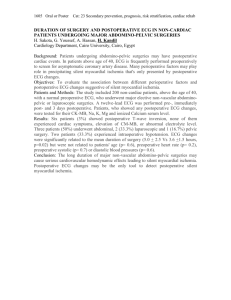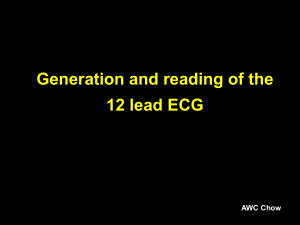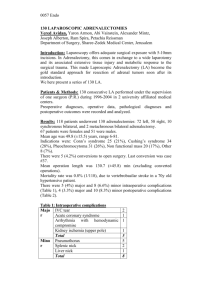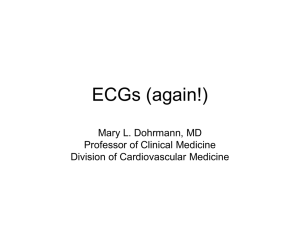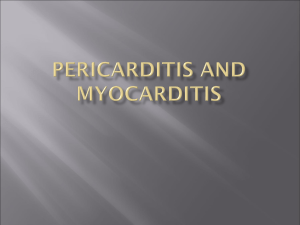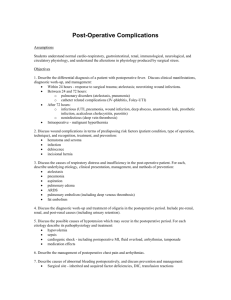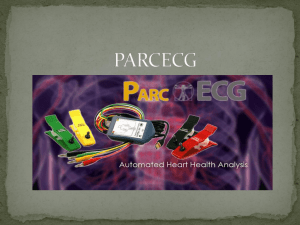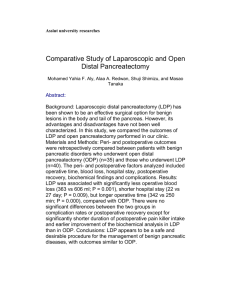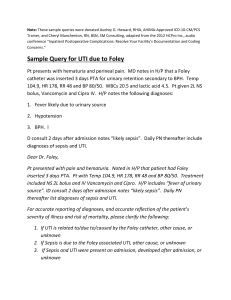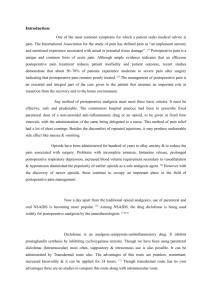prevalence of postoperative ecg changes in non
advertisement
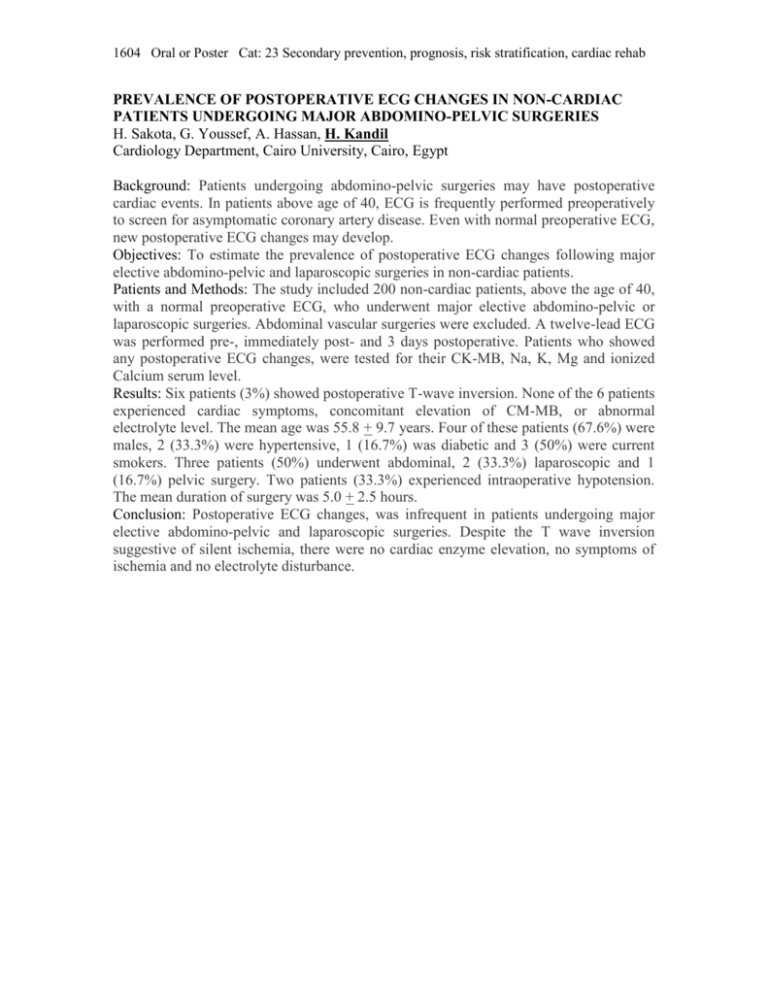
1604 Oral or Poster Cat: 23 Secondary prevention, prognosis, risk stratification, cardiac rehab PREVALENCE OF POSTOPERATIVE ECG CHANGES IN NON-CARDIAC PATIENTS UNDERGOING MAJOR ABDOMINO-PELVIC SURGERIES H. Sakota, G. Youssef, A. Hassan, H. Kandil Cardiology Department, Cairo University, Cairo, Egypt Background: Patients undergoing abdomino-pelvic surgeries may have postoperative cardiac events. In patients above age of 40, ECG is frequently performed preoperatively to screen for asymptomatic coronary artery disease. Even with normal preoperative ECG, new postoperative ECG changes may develop. Objectives: To estimate the prevalence of postoperative ECG changes following major elective abdomino-pelvic and laparoscopic surgeries in non-cardiac patients. Patients and Methods: The study included 200 non-cardiac patients, above the age of 40, with a normal preoperative ECG, who underwent major elective abdomino-pelvic or laparoscopic surgeries. Abdominal vascular surgeries were excluded. A twelve-lead ECG was performed pre-, immediately post- and 3 days postoperative. Patients who showed any postoperative ECG changes, were tested for their CK-MB, Na, K, Mg and ionized Calcium serum level. Results: Six patients (3%) showed postoperative T-wave inversion. None of the 6 patients experienced cardiac symptoms, concomitant elevation of CM-MB, or abnormal electrolyte level. The mean age was 55.8 + 9.7 years. Four of these patients (67.6%) were males, 2 (33.3%) were hypertensive, 1 (16.7%) was diabetic and 3 (50%) were current smokers. Three patients (50%) underwent abdominal, 2 (33.3%) laparoscopic and 1 (16.7%) pelvic surgery. Two patients (33.3%) experienced intraoperative hypotension. The mean duration of surgery was 5.0 + 2.5 hours. Conclusion: Postoperative ECG changes, was infrequent in patients undergoing major elective abdomino-pelvic and laparoscopic surgeries. Despite the T wave inversion suggestive of silent ischemia, there were no cardiac enzyme elevation, no symptoms of ischemia and no electrolyte disturbance.
